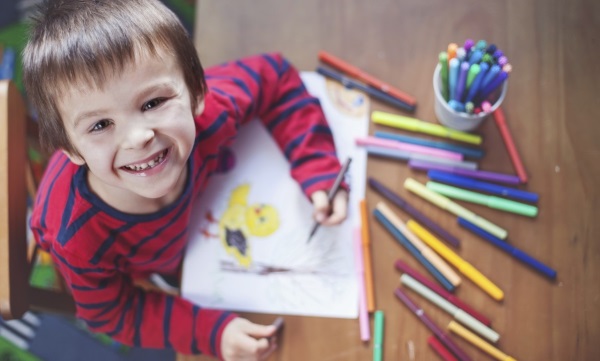Coping effectively with transition, especially if difficult or traumatic, is crucial if we are to thrive in later life. The need to get it right in early years is essential.

Transition isn’t pretty, but stagnation is hideous. Nikki Rowe
Transitions are inevitable. We experience transitions to varying degrees throughout our lives; minor transitions on a daily basis, more significant transitions at key points such as entering nursery, starting primary school, moving house, starting work, becoming a parent and so on.
Dr. Sue Allingham, author and consultant on transitions in early years knows from her experience that the positive wellbeing of the child is at the heart of good transitions:
'It’s all about understanding the needs of the child. If a child is in a settled place, transitions will go more smoothly.'
This, of course, intuitively makes sense. And yet we know from the experience of working with children and young people going through transitions that not all are settled and calm about change, and the risk of having their foundations rocked by transitions remains real for many children.
Dr. Allingham believes there are factors that can help. ‘The key is for schools to visit nursery settings and vice versa,’ she feels. ‘Strong relationships are very important as well, and all involved need to have a solid understanding of child development and effective early years pedagogy.
'For the transition from a day nursery into a school, we would hope for positive two-way communication between settings. The needs of the child and the family must come first. We should not make any assumptions!
'I do sometimes come across the belief that children start their learning once they turn five. That’s nonsense! Children are learning from the moment they are alive. Even if a child has spent a couple of years pre-school watching CBeebies they have been learning. Make no assumptions about anyone.’
Nick Peck, Montessori teacher and owner of the Bright Little Buttons Montessori Nursery School, has seen that when children are given the freedom to develop according to their own innate tendencies, without pressure to conform beyond basic good manners, safety and respect for their environment and the other people in it, they are socially comfortable.
‘In particular, children who have experienced Montessori education in early years have been encouraged to think independently and, wherever and whenever possible, to resolve problems by themselves, leading to their becoming happy, confident and resourceful little people.
'This generally allows them to adapt easily to any new setting, although they may be a little disheartened to find out that they can’t paint when they want, access resources when they choose or clean-up their work as they’re used to doing!’
This points to one of the key areas for focus when getting transitions right. It may sound obvious, but letting go of the old ways and becoming familiar and comfortable with the new will help children to move through transitions healthily. But this isn’t something that simply happens. Children need ongoing guidance and support and a sense of secure attachment.
As teachers, being sensitive to the anxieties triggered by transition may help not only to alleviate them but to lay the foundations of healthy transitions in the future.
If the sense of loss is managed and contained and if we are attuned to subtle changes in behaviour and mood that might indicate deeper apprehensions and act on them, then we may nurture emotional resilience and emphasise the many positives about transitioning through change throughout life.
‘Getting transitions right in early years can have a positive impact on other transitions that children will encounter throughout their school careers and beyond,’ explains Dr. Allingham. ‘This is about helping children to understand change, to develop resilience and to face and deal with any grief associated with moving on. Smooth transitions matter.’